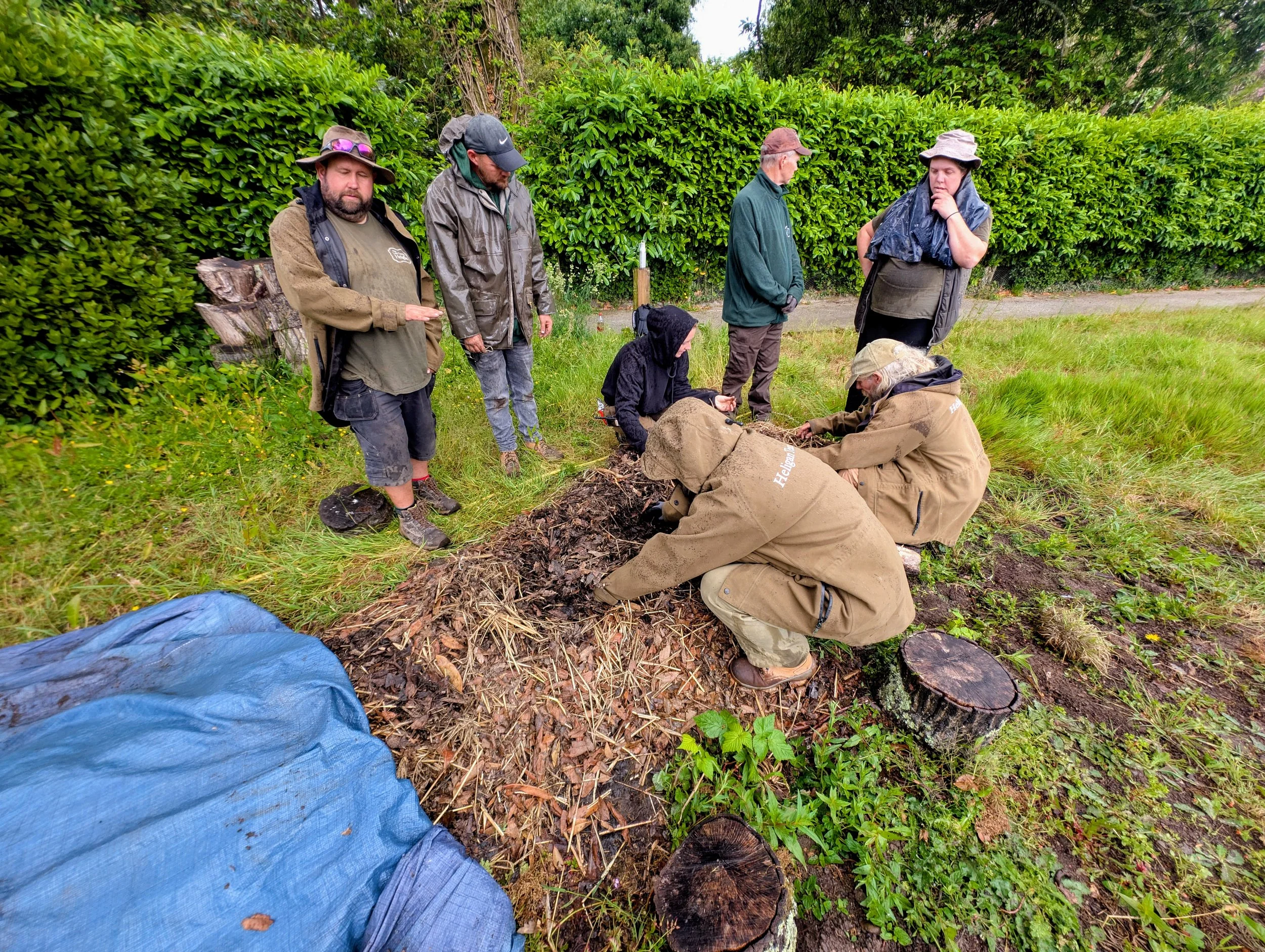🌱 Supporting Compost Innovation in Cornwall
Across Cornwall, growers are finding new ways to turn persistent weeds into living soil resources. This year, Agriton UK has been proud to support two leading compost innovation projects — at The Lost Gardens of Heligan and Prideaux Walled Garden — both trialling bokashi fermentation and microbial composting to tackle oxalis and bindweed while improving soil structure and fertility.
These ongoing collaborations are part of the Farm Net Zero and Innovative Farmers Field Lab projects, which bring growers, scientists, and soil specialists together to explore practical, nature-based solutions for resilient farming.
🌸 Heligan Gardens: Reducing Oxalis with Bokashi
At The Lost Gardens of Heligan, Manager Nicola Bradley and her team have been running bokashi trials on oxalis-infested waste.
“The side-by-side comparison with the crates showed that less than 10% of the oxalis survived the bokashi process,” said Nicola. “We’re happy to put all the material back into our large compost bays to complete the final stage of composting.”
Encouraged by the results, Heligan is now creating a dedicated composting area with separate bays for oxalis weeds, woodchip, and green waste alongside its bokashi rows. The team also plans to test marestail soaked in bokashi liquid to see whether microbial fermentation can suppress other tough perennials.
Agriton UK has supported the Heligan team with Actiferm microbial inoculants, molasses-based fermentation inputs, and guidance on maintaining optimal temperature and moisture for bokashi success.
“Everyone is keen to see just how many ways we can use bokashi to tackle invasive weeds,” Nicola added.
🌿 Prideaux Walled Garden: Compost, Broadforks, and Bindweed
Over at Prideaux Walled Garden, grower Emma Restorick has been leading trials focused on bindweed control through improved compost management.
“It was just amazing,” Emma explained. “A really good application of homemade, microbially rich compost significantly reduced the presence of bindweed. Increasing organic matter and aerating the soil allows it to function better and make full use of that organic matter.”
The first-year results were clear: combining deep compost mulching with broadfork aeration dramatically reduced bindweed both above and below ground. Adding cover crops and land sheeting provided further suppression and improved overall soil health.
Emma’s work also highlights how moisture management and regular turning play vital roles in producing high-quality compost. She’s now incorporating bokashi and other microbial brews to accelerate decomposition and build even richer, more biologically diverse compost.
“Bokashi seems to speed up decomposition — and worms absolutely love it,” she said. “I’ve been using it on tougher materials like ivy before adding them into the main pile.”
🧫 Why Bokashi Composting Matters
Unlike traditional aerobic composting, bokashi is an anaerobic fermentation process using lactic acid bacteria (LAB) to break down organic matter while retaining its nutrients.
Trials show bokashi systems can conserve up to 99% of carbon and 93% of nitrogen compared with standard composting.
The result is a nutrient-dense, stable compost that preserves organic carbon for soil microbes — turning waste into a living, microbially active resource.
🌍 Building Soil Resilience the Natural Way
Both Heligan and Prideaux are proving that regenerative composting is more than just recycling — it’s a way to restore soil health, reduce chemical inputs, and close the loop between waste and fertility.
By pairing bokashi fermentation with thoughtful compost management, these gardens are creating self-sustaining systems that support biodiversity, retain nutrients, and suppress weeds naturally.
At Agriton UK, we’re proud to support these pioneering projects with microbial solutions like EM-1, fermentation training, and ongoing technical support — helping growers across the UK work with biology, not against it.
✅ Key Takeaways
Bokashi composting helps suppress invasive weeds like oxalis and bindweed.
Fermentation retains up to 99% carbon and 93% nitrogen compared to traditional composting.
Combining compost with broadfork aeration and cover crops improves soil structure and microbial diversity.
Projects at Heligan Gardens and Prideaux Walled Garden show that microbial management can transform waste into soil health.




